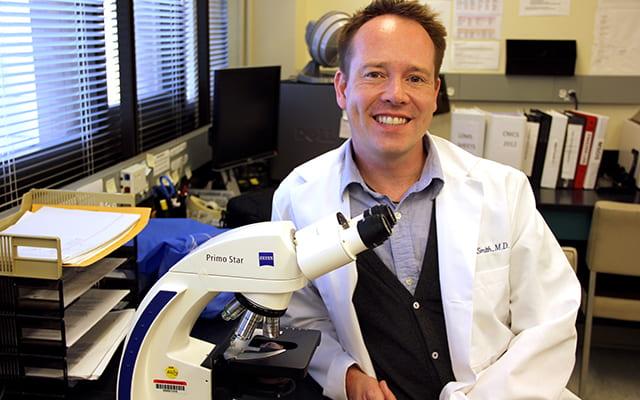
Credit: UC San Diego Health Sciences
The National Institutes of Health (NIH) has launched a much-anticipated Phase IIb clinical trial to evaluate whether the malaria drug hydroxychloroquine in combination with the antibiotic azithromycin can prevent hospitalization and death from COVID-19, the disease caused by the novel coronavirus 2019 or SARS-CoV-2.
Anecdotal reports out of China and subsequent small studies elsewhere suggest hydroxychloroquine alone or in combination with azithromycin may help reduce COVID-19 respiratory infections, lessening the disease’s severity. But other studies have found no improvement and, in fact, report that patients receiving both drugs together were more likely to experience cardiac arrest than those who received one or neither of the therapies.
As a result, the FDA cautions that hydroxychloroquine for COVID-19 be limited to clinical trials or for treating certain hospitalized patients under emergency use authorization so clinicians can closely monitor patients for adverse effects.
There are numerous clinical trials planned or underway to assess hydroxychloroquine as a safe, effective treatment of adults hospitalized with COVID-19. The new NIH trial is the largest and highest profile to date: a randomized, double-blind interventional trial that will recruit 2,000 participants at 30 sites across the United States.
Heading the study is Davey Smith, MD, a translational research virologist, head of Infectious Diseases and Global Public Health at University of California San Diego School of Medicine and co-director of the San Diego Center for AIDS Research.
###
For more information, please visit: https:/
For more information about the trial, visit ClinicalTrials.gov and search identifier NCT04358068. Adults interested in participating in the study can email [email protected]. In San Diego, please email Jill Kunkel at [email protected].
Media Contact
Scott LaFee
[email protected]




